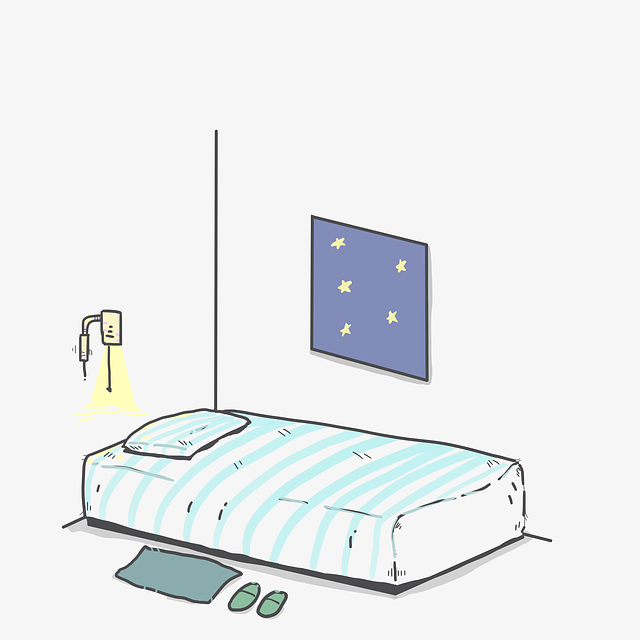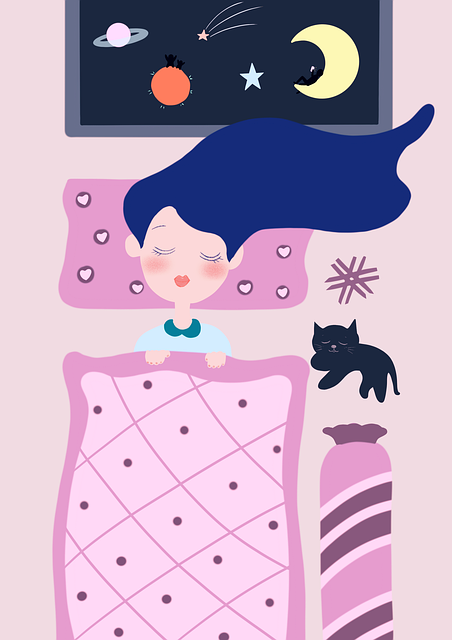“Uncover the power of High-Dose Melatonin Therapy as a revolutionary sleep aid. This natural approach, involving concentrated doses of melatonin, has gained attention for its potential to transform rest and recovery. From understanding its biological mechanisms to exploring its benefits and side effects, this article guides you through the ins and outs of this powerful therapy. Learn about its implementation, safety precautions, and how it could be your key to a deeper, more rejuvenating sleep.”
- Understanding High-Dose Melatonin Therapy
- Potential Benefits and Side Effects
- Implementation and Safety Precautions
Understanding High-Dose Melatonin Therapy

High-Dose Melatonin Therapy involves administering significantly higher levels of melatonin, a hormone naturally produced by our bodies to regulate sleep-wake cycles, than what is typically found in over-the-counter supplements. This approach differs from standard melatonin supplementation, often used as a gentle aid for occasional sleep issues. By increasing the dose, high-dose therapy aims to provide more potent support for disrupted circadian rhythms, which can lead to chronic sleep problems.
This form of treatment is particularly appealing for individuals with conditions like jet lag, shift work disorders, or severe insomnia where traditional methods have shown limited success. Research suggests that higher doses of melatonin can help reset the body’s internal clock, promoting faster and deeper sleep. However, it’s crucial to approach this therapy under professional guidance due to potential side effects and individual variations in response.
Potential Benefits and Side Effects

High-dose melatonin therapy presents a promising approach for those struggling with sleep issues, offering several potential benefits. Melatonin is a natural hormone that regulates the sleep-wake cycle, and when administered in higher doses, it can help reset this rhythm, leading to improved sleep quality and duration. Studies suggest that it may be effective for conditions like jet lag, shift work sleep disorder, and certain sleep disorders, such as insomnia, where other treatments haven’t been successful.
However, like any treatment, high-dose melatonin therapy isn’t without potential side effects. Some individuals might experience daytime grogginess, headaches, or even nausea. Since melatonin can interact with various medications, it’s crucial to consult a healthcare professional before starting this therapy. Additionally, long-term use and high doses may disrupt natural melatonin production, leading to dependency. Therefore, personalized dosing and duration are essential under medical supervision.
Implementation and Safety Precautions

Implementing high-dose melatonin therapy involves careful consideration and professional guidance. It is typically prescribed by healthcare providers for specific sleep disorders, such as insomnia or jet lag. The dosage can vary significantly from person to person, depending on individual needs and tolerance. It’s crucial to start with a low dose and gradually increase under medical supervision to avoid potential side effects like grogginess or suppression of the body’s natural melatonin production.
Safety precautions are paramount when considering high-dose melatonin therapy. As with any supplement, it’s essential to consult a doctor before starting, especially if you have pre-existing health conditions or are taking other medications. Regular monitoring is often recommended to ensure the treatment remains effective and safe. Additionally, staying informed about potential drug interactions and being mindful of synthetic vs. natural melatonin sources can contribute to a more successful and secure sleep aid experience.
High-dose melatonin therapy presents a promising approach for those seeking natural sleep aid, but it’s crucial to approach it with informed caution. While research suggests potential benefits, including improved sleep quality and reduced insomnia symptoms, further studies are needed to fully understand its effects. Before implementing this therapy, consult a healthcare professional to ensure safe usage and tailor the dosage to individual needs. Remember, effective sleep management involves a holistic approach, combining lifestyle adjustments, healthy habits, and, if necessary, evidence-based treatments like high-dose melatonin therapy.

